Climate
-
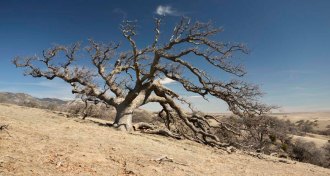 Climate
ClimateCalifornia drought worst in at least 1,200 years
The current California drought is the most severe in 1,200 years, according to historical information gleaned from tree rings.
-
 Climate
ClimateResilience protects corals from hurricanes — and climate change
Coral reefs have evolved to be resilient in the face of hurricanes that can devastate human populations. But climate change is reducing the ability of reefs to bounce back from disaster.
-
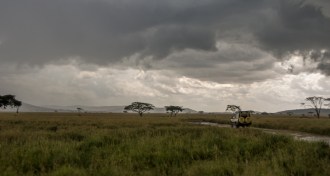 Climate
ClimateGreenhouse gases may spell wet future for Africa
Greenhouse gases played a role in boosting rainfall in Africa 14,000 to 21,000 years ago, a finding that may help predict future abundance of water on the continent.
By Beth Mole -
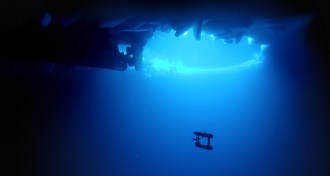 Oceans
OceansRobotic subs reveal thicker Antarctic sea ice
New measurements by robotic subs suggest that scientists have underestimated Antarctic sea ice thickness.
-
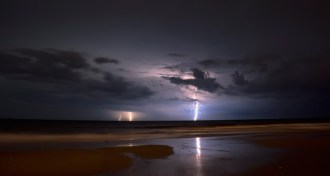 Climate
ClimateLightning strikes will surge with climate change
Climate warming could boost lightning strikes in the United States by roughly 50 percent over the next century.
-
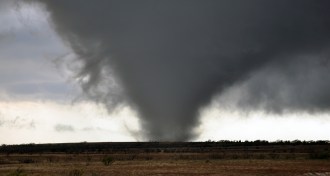 Earth
EarthMore multi-tornado days in the forecast for U.S.
The number of days per year with tornadoes has gone down over the last few decades in the U.S., but the number of days that see 30 or more twisters is going up.
-
 Climate
ClimateMelting ice forces walrus detour
Warming temperatures and shrinking summer ice cover have forced the animals to seek solid ground during feeding season.
-
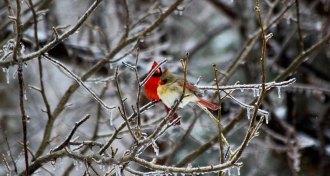 Animals
AnimalsSouthern birds may be moving into your winter backyard
A warming climate is letting warm-adapted birds live farther north in winter, a new study finds.
-
 Physics
PhysicsFalling raindrops break terminal velocity
Unknown mechanism causes tiny raindrops to fall faster than terminal velocity.
-
 Climate
ClimateRivers may gush under sullied skies
By dimming sunlight and curbing evaporation, air pollution can increase the amount of water flowing through rivers, new simulations suggest.
By Beth Mole -
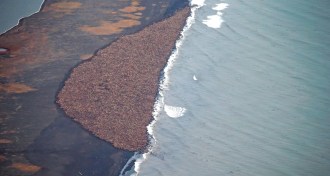 Animals
AnimalsLacking ice, huge walrus herd congregates on Alaska shore
A large group of walruses has hauled out on the beach near Point Lay, Alaska. The animals have been forced onto shore due to a lack of sea ice in the region.
-
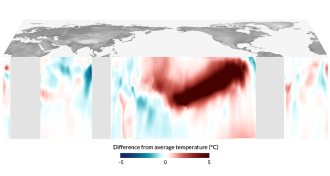 Climate
ClimateMissing winds probably foiled 2014’s chance for El Niño
Lack of antitrade winds probably hampered 2014 El Niño.